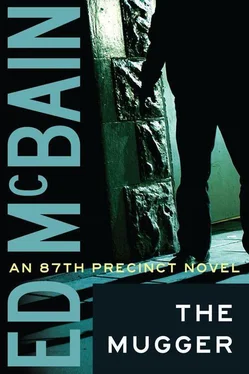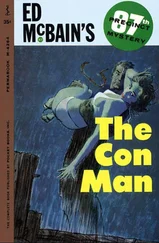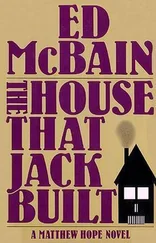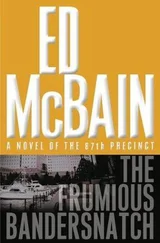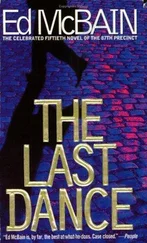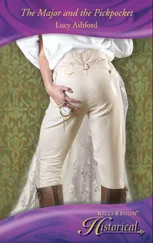“Diddling around with a murder case, eh?”
“I didn’t realize, sir, that—”
“Listen to me, Sherlock,” Hawthorne said, slamming his open palm on to the desk. “We got a phone call here this afternoon.” He opened the top drawer. “Clocked in at” — he consulted a pad — “sixteen thirty-seven. Said you were messing around with this Jeannie Paige thing.” Hawthorne crashed the desk drawer shut. “I’ve been very kind to you, Sherlock. I could have gone straight to Captain Frick at the 87th. The 87th happens to be your precinct, and Captain Frick happens to be an old and dear friend of mine, and Captain Frick doesn’t take nonsense from runny-nosed patrolmen who happen to be walking beats. Lieutenant Byrnes of your precinct likes to stick his nose in murder cases, too, and I can’t do a hell of a lot about that, except occasionally show him I don’t too much appreciate his goddamn Aunt Suzianna help! But if the 87th think it’s going to run in a patrolman on me, if the 87th thinks—”
“Sir, the precinct didn’t know anything about my—”
“AND THEY STILL DON’T KNOW!” Hawthorne shouted. “And they don’t know because I was kind enough not to mention this to Captain Frick. I’m being good to you, Sherlock, remember that. I’m being goddamn good and kind to you, so don’t give me any lip!”
“Sir, I wasn’t—”
“All right, listen to me, Sherlock. If I hear again that you’re even thinking about Jeannie Paige, your tail is going to be in one big sling. I’m not talking about a transfer to a beat in Bethtown, either. I’m talking about OUT! You are going to be out in the street. You are going to be out and cold. And don’t think I can’t do it.”
“Sir, I didn’t think—”
“I know the commissioner the way I know the back of my own hand. The commissioner would sell his wife if I asked him to; that’s the way I know the commissioner. So don’t for one second think the commissioner wouldn’t toss a snot-nosed patrolman right out on his ear if I asked him to. Don’t for a minute think that, Sherlock.”
“Sir—”
“And don’t for a minute think I’m kidding, Sherlock, because I never kid around where it concerns murder. You’re fooling with murder, do you realize that? You’ve been barging around asking questions, and God alone knows who you’ve scared into hiding, and God alone knows how much of our careful work you’ve fouled up! SO LAY OFF! Go walk your goddamn beat! If I get another squeal about you—”
“Sir?”
“WHAT IS IT?”
“Who called you, sir?”
“That’s none of your goddamn business!” Hawthorne shouted.
“Yes, sir.”
“Get out of my office. You make me sick. Get out of my office.”
“Yes, sir,” Kling said. He turned and went to the door.
“AND DON’T FOOL WITH MURDER!” Hawthorne shouted after him.
He called Claire at 11:10. The phone rang six times, and he was ready to hang up, afraid he’d caught her asleep, when the receiver was lifted.
“Hello?” she said. Her voice was sleepy.
“Claire?”
“Yes, who’s this?”
“Did I wake you?”
“Yes.” There was a pause, and then her voice became a bit more lively. “Bert? Is that you?”
“Yes. Claire, I’m sorry I—”
“The last time I got stood up was when I was sixteen and had a—”
“Claire, I didn’t stand you up, honest. Some Homicide cops—”
“It felt like being stood up. I waited in the newspaper office until a quarter to eight, God knows why. Why didn’t you call?”
“They wouldn’t let me use the phone.” Kling paused. “Besides, I didn’t know how I could reach you.”
Claire was silent.
“Claire?”
“I’m here,” she said wearily.
“Can I see you tomorrow? We’ll spend the day together. I’m off tomorrow.”
Again, there was silence.
“Claire?”
“I heard you.”
“Well?”
“Bert, why don’t we call it quits, huh? Let’s consider what happened tonight an ill omen and just forget the whole thing, shall we?”
“No,” he said.
“Bert—”
“No! I’ll pick you up at noon, all right?”
Silence.
“Claire?”
“All right. Yes,” she said. “Noon.”
“I’ll explain then. I… I got into a little trouble.”
“All right.”
“Noon?”
“Yes.”
“Claire?”
“Yes?”
“Good night, Claire.”
“Good night, Bert.”
“I’m sorry I woke you.”
“That’s all right. I’d just dozed off, anyway.”
“Well… good night, Claire.”
“Good night, Bert.”
He wanted to say more, but he heard the click of the receiver being replaced in the cradle. He sighed, left the phone booth, and ordered a steak with mushrooms, french-fried onions, two baked potatoes, a huge salad with Roquefort dressing, and a glass of milk. He finished off the meal with three more glasses of milk and a slab of chocolate cream pie.
On the way out of the restaurant, he bought a candy bar.
Then he went home to sleep.
A common and much believed fallacy in popular literature is the one that links romantic waiters with starry-eyed couples who are obviously in love. The waiter hovers over the table, suggesting special dishes (“Per’aps the pheasant under ground glass for ze lady, yas?”), kissing his fingers, or wringing his hands against his chest while his heart bursts with romance.
Bert Kling had been in a good many restaurants in the city, as boy and man, with a good many young ladies ranging from the plain to the beautiful. He had come to the conclusion a long while back that most waiters in most restaurants had nothing more romantic on their minds than an order of scrambled eggs with lox.
He did not for a moment believe that he and Claire looked starry-eyed with love, but they were without doubt a nice-enough-looking couple, and they were in a fashionable restaurant that overlooked the River Harb, high atop one of the city’s better-known hotels. And, even discounting the absence of the starry-eyed (which he was fast coming to believe were nothing more than a Jon Whitcomb creation — ah, once a man begins to doubt…), he felt that any waiter with more than a stone for a heart should have recognized and aided the fumbling and primitive ritual of two people who were trying to get to know each other.
The day, by any standards, had not been what Kling would have called a rousing success.
He had planned on a picnic in Bethtown, with its attendant ferry ride from Isola across the river. Rain had destroyed that silly notion.
He had drippingly called for Claire at twelve on the dot. The rain had given her a “horrible headache.” Would he mind if they stayed indoors for a little while, just until the Empirin took hold?
Kling did not mind.
Claire had put some good records into the record player and then had lapsed into a heavy silence, which he attributed to the throbbing headache. The rain had oozed against the windowpanes, streaking the city outside. The music had oozed from the record player — Bach’s Brandenburg Concerto No. 5 in D, Strauss’s Don Quixote, Franck’s Psyche.
Kling almost fell asleep.
They left the apartment at 2:00. The rain had let up somewhat, but it had put a knife-edge on the air, and they sloshed along in a sullen, uncommunicative silence, hating the rain with common enmity, but somehow having allowed the rain to build a solid wedge between them. When Kling suggested a movie, Claire accepted the offer eagerly.
The movie was terrible.
The feature was called Apache Undoing, or some such damn thing, and it starred hordes of painted Hollywood extras who screeched and whooped down upon a small band of blue-clothed soldiers. The handful of soldiers fought off the wily Apaches until almost the end of the movie. By this time, the hordes flung against the small, tired band must have numbered in the tens of thousands. With five minutes to go in the film, another small handful of soldiers arrived, leaving Kling with the distinct impression that the war would go on for another two hours in a subsequent film to be titled Son of Apache Undoing.
Читать дальше
